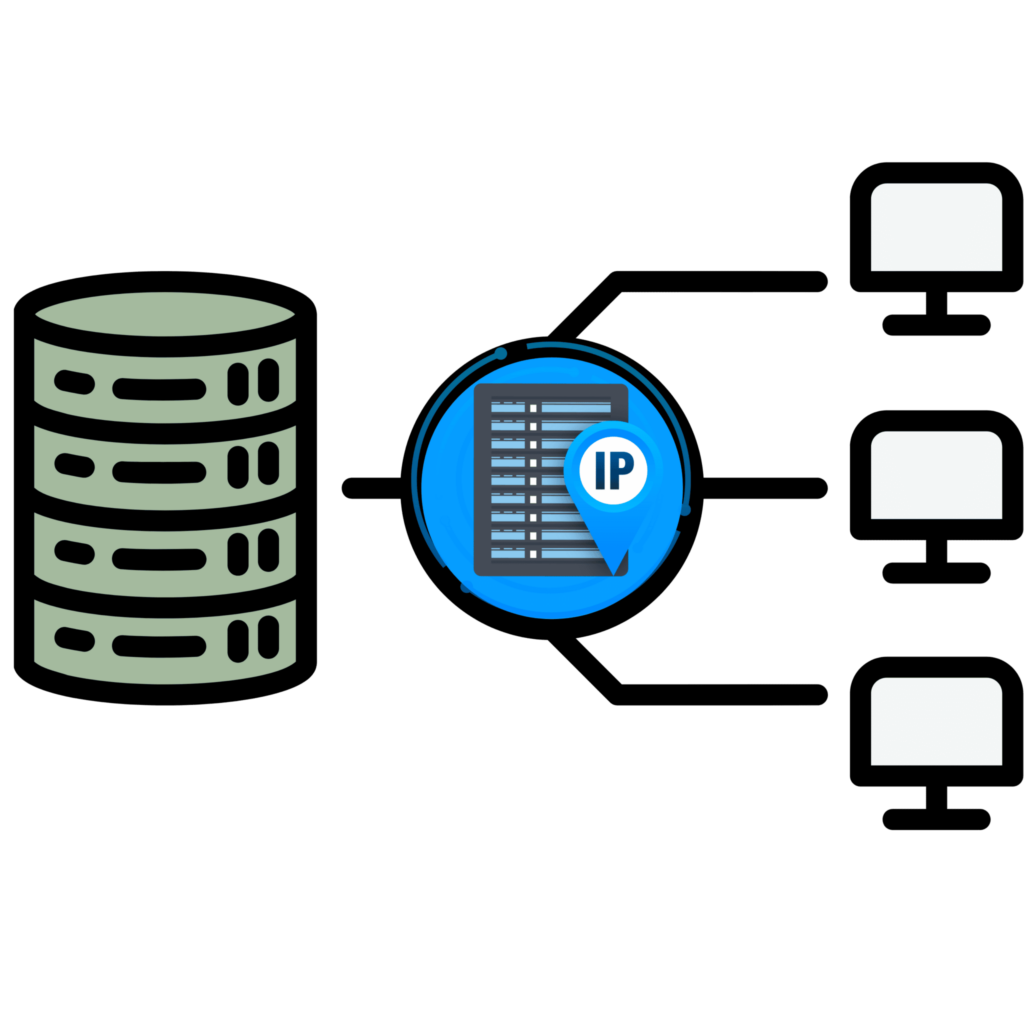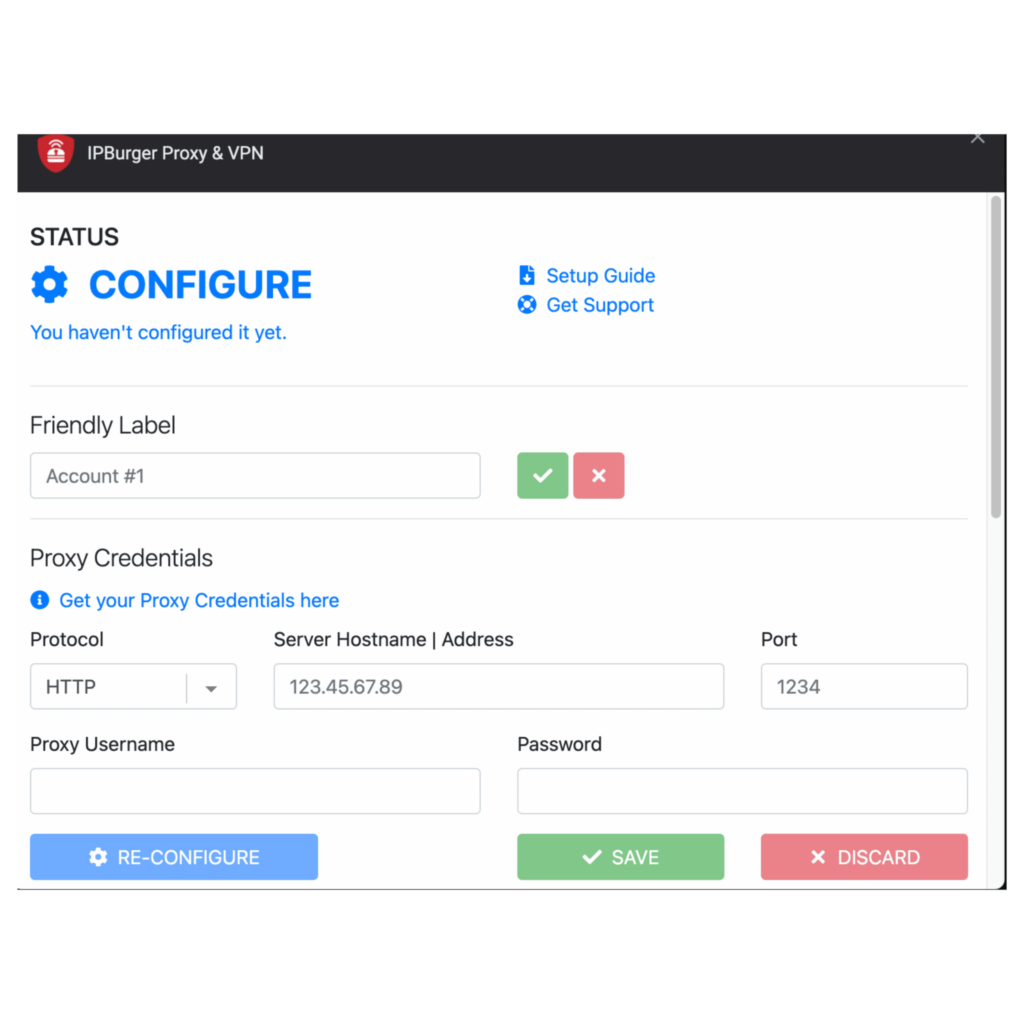Proxy servers are a valuable tool for both security and performance. However, choosing the right proxy server for your needs is important.
This article will provide you with information on how to select a proxy server and how to use a proxy server.
What are proxy servers?
A proxy server is a computer that acts as an intermediary between a client machine and a server. It allows client machines to make indirect network connections to other network services. A proxy server can be used to allow clients to bypass security restrictions and access resources that they otherwise would not be able to.

How do proxy servers work?
Proxy servers may seem complicated. It may help to understand some of the technical elements. Here are some additional examples of how proxies work.
A proxy server is an intermediary computer that typically sits between your local network and the internet. When you connect to websites, your computer sends requests to the proxy server, which then sends your request to the website you are trying to visit. The proxy server receives the website’s response and forwards it to your computer. A proxy server can hide your computer’s identity, making it difficult for a website to track your activity.
Internet service providers and businesses often use proxies to filter content, improve speed, and protect against attacks.
How to use proxy servers.
If you want to use a proxy server, you will need to configure your browser to connect to the proxy server. This can be done in the browser’s settings. Each browser is different, so you must consult your documentation for instructions.
When configuring your browser to use a proxy server, you must enter the server’s address and port number. You can find this information from the proxy server’s administrator.

IPBurger´s proxies are easy to configure. You can just click on a browser extension and access everything from the drop menu.
What are the different types of proxy servers?
There are many different types of proxy servers. Here are some of the most common:
- Forward proxy: A forward proxy is used to forward client requests to servers. A forward proxy can improve performance by caching frequently requested resources. It can also be used to bypass security restrictions.
- Reverse proxy: A reverse proxy is used to forward requests from servers to clients. A reverse proxy can improve performance by caching frequently requested resources. It can also be used to bypass security restrictions.
- Transparent proxy: A transparent proxy is used to forward client requests to servers and vice versa. A transparent proxy can improve performance by caching frequently requested resources. It can also be used to bypass security restrictions.
- Web proxy servers: A web proxy server is a type of proxy server that allows you to browse the internet. When you connect to a web proxy server, your computer sends requests to the proxy server, which then sends your request to the website you are trying to visit. The proxy server receives the website’s response and forwards it to your computer.
- SOCKS proxy servers: A SOCKS proxy server is a type of proxy server that allows you to connect to applications and services. When you connect to a SOCKS proxy server, your computer sends requests to the proxy server, which then sends your request to the application or service you are trying to connect to. The proxy server receives the response and forwards it to your computer.
- Anonymizing proxy servers: An anonymizing proxy server is a type of proxy server that hides your computer’s identity. When you connect to an anonymizing proxy server, your computer sends requests to the proxy server, which then sends your request to the website you are trying to visit. The proxy server receives the website’s response and forwards it to your computer.
- Caching proxy servers: A caching proxy server is a proxy server that stores copies of websites you have visited. When you connect to a caching proxy server, your computer sends requests to the proxy server, which checks its cache to see if it has a copy of the website you are trying to visit. If the proxy server has a copy of the website, it will send the cached version to your computer. If the proxy server does not have a copy of the website, it will send your request to the website and cache the website’s response. Caching proxy servers can be used to improve speed and reduce bandwidth usage.
What are the benefits of using a proxy server?
There are many reasons why you should use a proxy server. For example, if you are worried about someone monitoring your internet traffic, you can use a proxy server to encrypt your traffic. This is because the proxy server will act as a middleman between your computer and the internet, and all traffic will be passed through the proxy server.
Another reason to use a proxy server is to bypass restrictions placed on your internet connection. For example, if your school or workplace has blocked certain websites, you can use a proxy server to access those websites.
Proxy servers can also be used to improve your internet speed. This is because a proxy server can cache websites you have visited before, so you won’t have to wait for the website to load from scratch every time you visit it.
Summary
- Improve speed by caching websites you have visited.
- Improve security by filtering content and blocking malicious websites.
- Improve privacy by anonymizing your computer’s identity.
What are the disadvantages of using a proxy server?
Using a proxy server can lead to decreased speed because of the extra hop required to connect to the proxy server. Additionally, if the proxy server is not located in the same country as the user, there may be further increased latency due to international network conditions. Additionally, proxy servers can sometimes be unreliable and may introduce additional security risks.
Summary
- Slow your connection if the proxy server is slow or overloaded.
- Reduce your privacy if they do not anonymize your computer’s identity.
- Reduce security if they do not filter content or block malicious websites.
What are some common uses for proxy servers?
There are many uses for proxies. We´ve already talked about enhancing privacy and security and bypassing restrictions. But there are more specialized use cases that are far more interesting. Here’s a list that links each use case to relevant knowledge bases:
What are some common myths about proxy servers?
There are several common myths about proxy servers:
- Large organizations only use proxy servers. Although large businesses use most proxy bandwidth, small to medium-sized businesses and individuals account for many of our users.
- Proxy servers are difficult to set up and maintain. There’s a hard way to do anything. However, many proxy providers, like IPBurger, take pride in how easy it is for our clients to use proxies.
- Proxy servers are not secure. There are, of course, dangerous proxy servers. In these cases, they are set up as a trap. These traps use terms like ¨free proxies¨to lure in unsuspecting guests to load their computers with malware or worse. So stick with well-known proxy sources whose business it is to keep you safe.
- Proxy servers do not improve performance. If you buy cheap proxies, you will likely downgrade your performance. That makes sense, right? Now, if you buy performance proxies, they will enhance your online experience. Some proxies are faster than others, depending on whether you use private, shared, datacenter, or residential proxies.
What else should I know about proxy servers?
There are a few things to remember when using a proxy server. First, you should make sure you trust the proxy server. This is because the proxy server can see all traffic going to and from your computer.
Secondly, you should be aware that some proxy servers are faster than others. This is because some proxy servers are closer to your computer than others.
Finally, you should know that using a proxy server will not make your internet connection completely anonymous. This is because your IP address will still be visible to the proxy server.

IPBurger proxy servers.
There are many reasons to use a proxy server, including hiding your IP address from websites, bypassing filters and censorship, and accessing blocked websites. However, proxy servers have risks, such as potential security breaches and decreased privacy.
When deciding whether to use a proxy server, weigh the risks and benefits to decide if it’s the right choice for you.
IPBurger has been in business for a long time, serves many happy clients, and continues to upgrade as technology changes. You would make safe, intelligent, and budget-friendly decisions by buying proxies through us.
Start with a residential proxy package, or contact the IPBurger team for personal support.
FAQs.
How can I set up a proxy server?
There are a few ways to set up a proxy server. One way is to use a web hosting service that supports proxy servers. Another way is to use a software application that can act as a proxy server. For an easy setup, get IPBurger proxies in three simple steps.
Are there any risks associated with using a proxy server?
There are many ways to set up a proxy server. One way is to use a web-based proxy server. This type of proxy server is usually easy to set up and use. However, there are some risks associated with using a web-based proxy server. These risks include the possibility of being tracked and monitored by the proxy server administrator and having your personal information and data exposed to the proxy server administrator.
How can I stay safe when using a proxy server?
To stay safe when using a proxy server, connect to a trusted proxy server and a server that uses a strong encryption method. Additionally, refrain from using public proxy servers, as these are often less secure than private ones.


